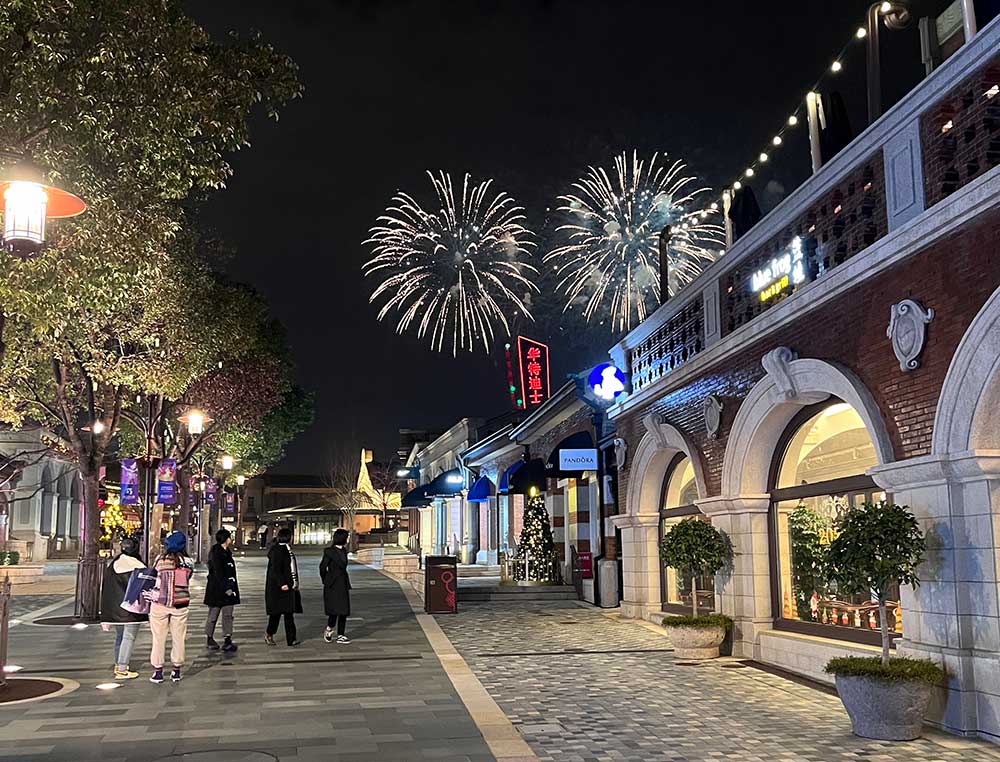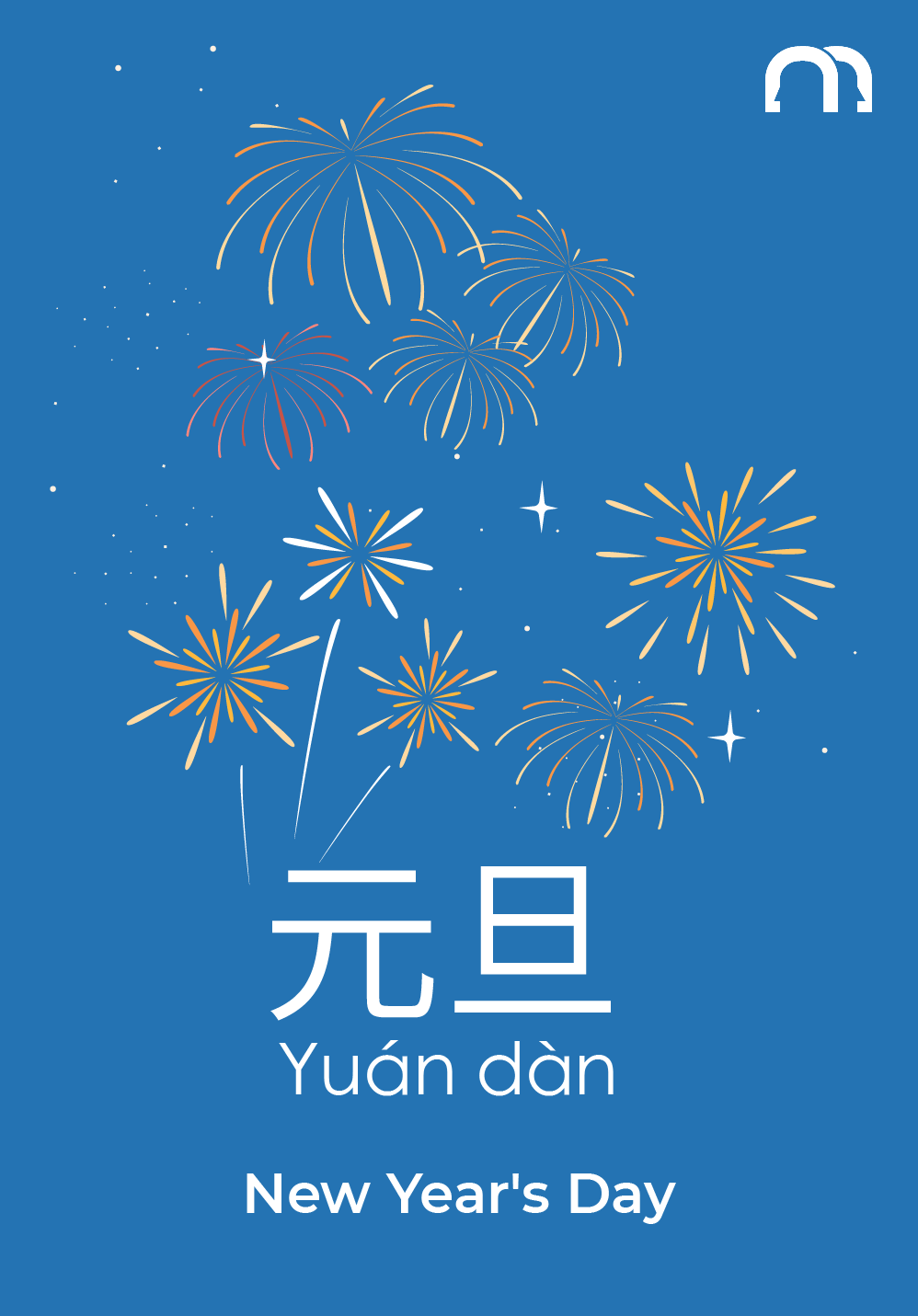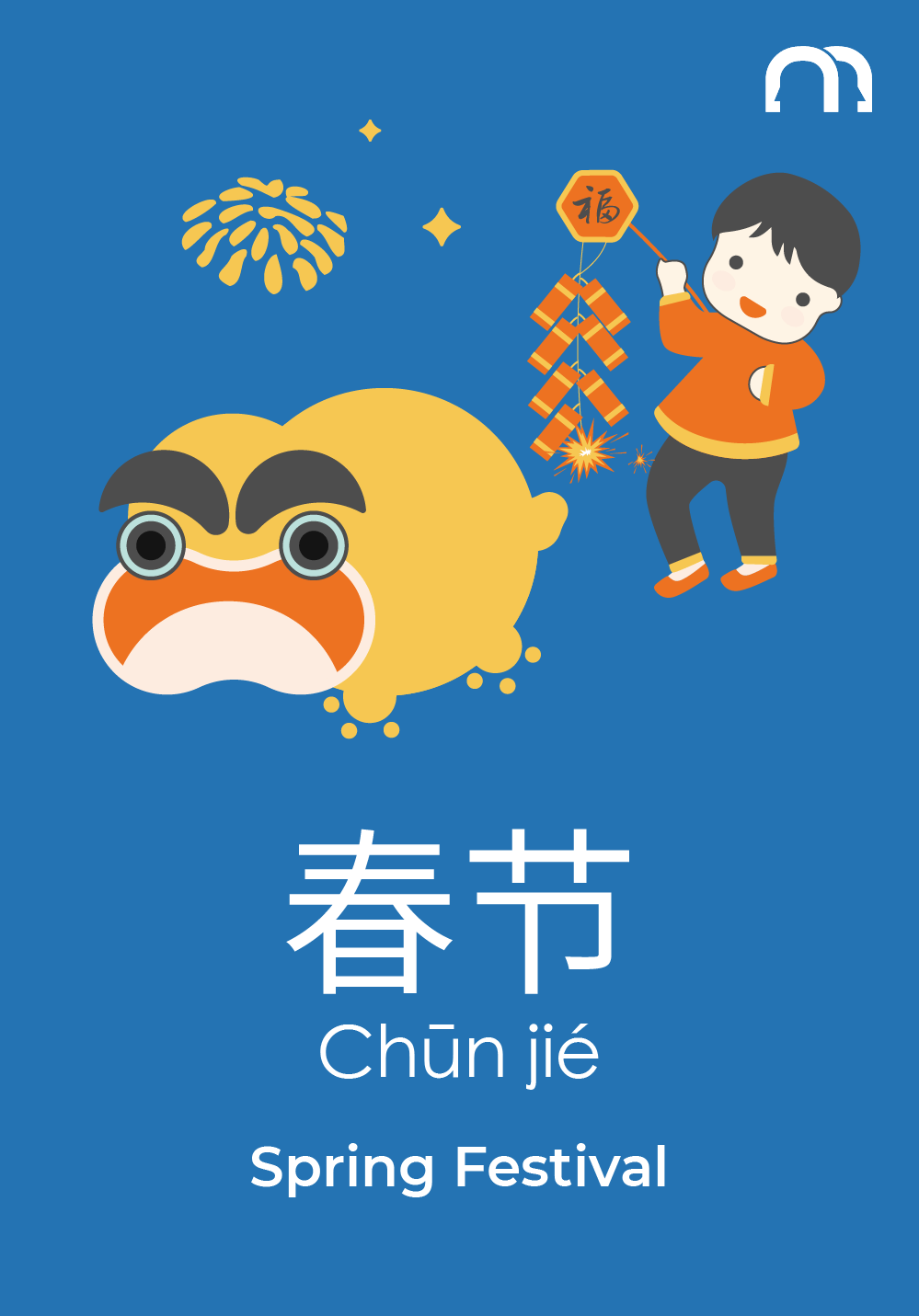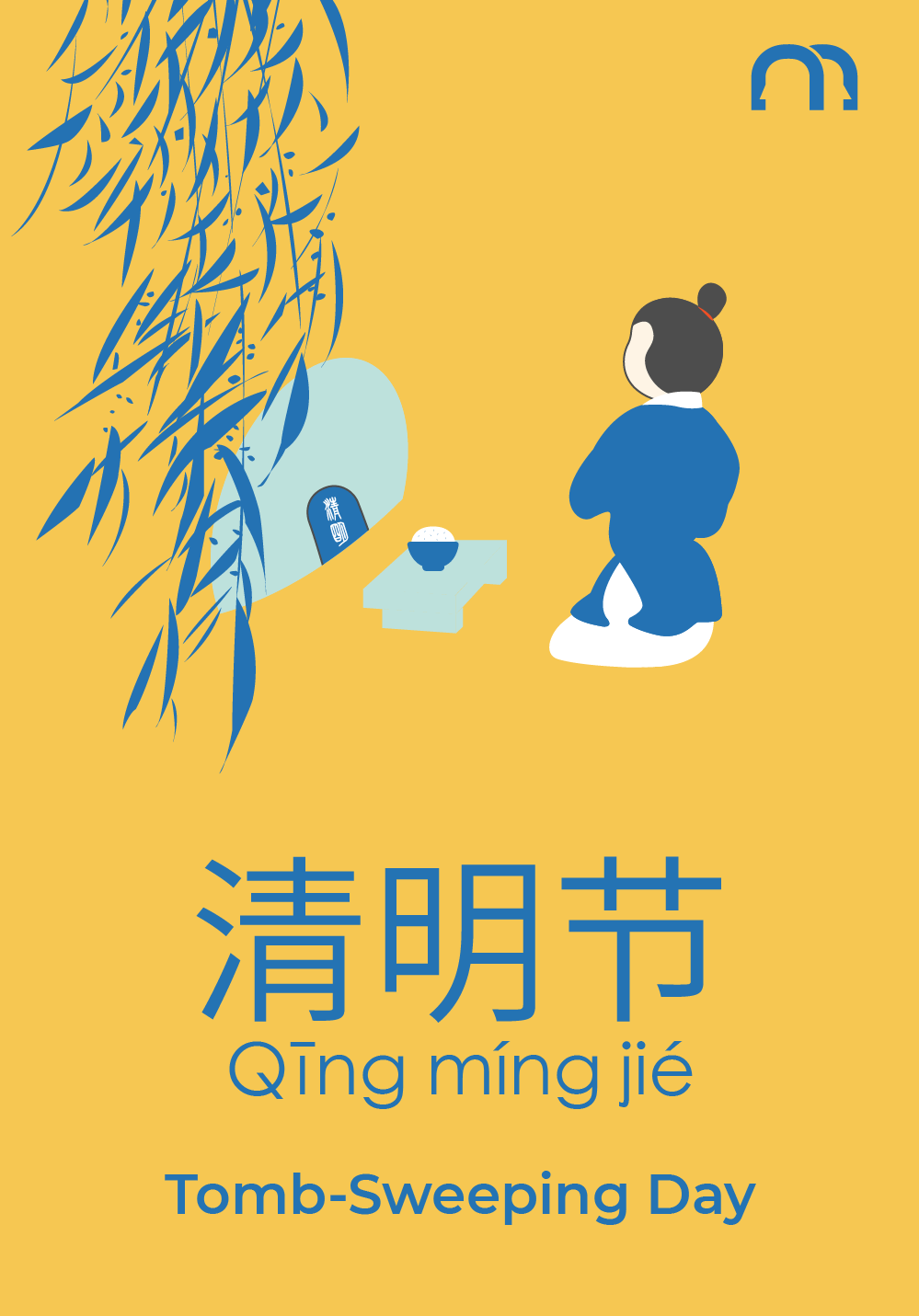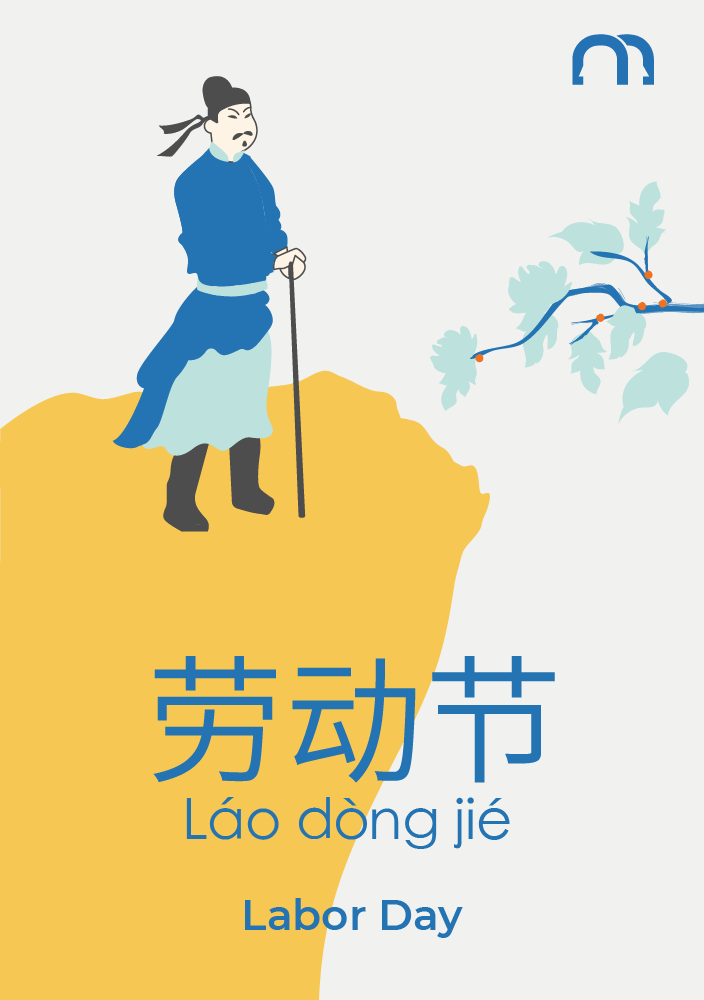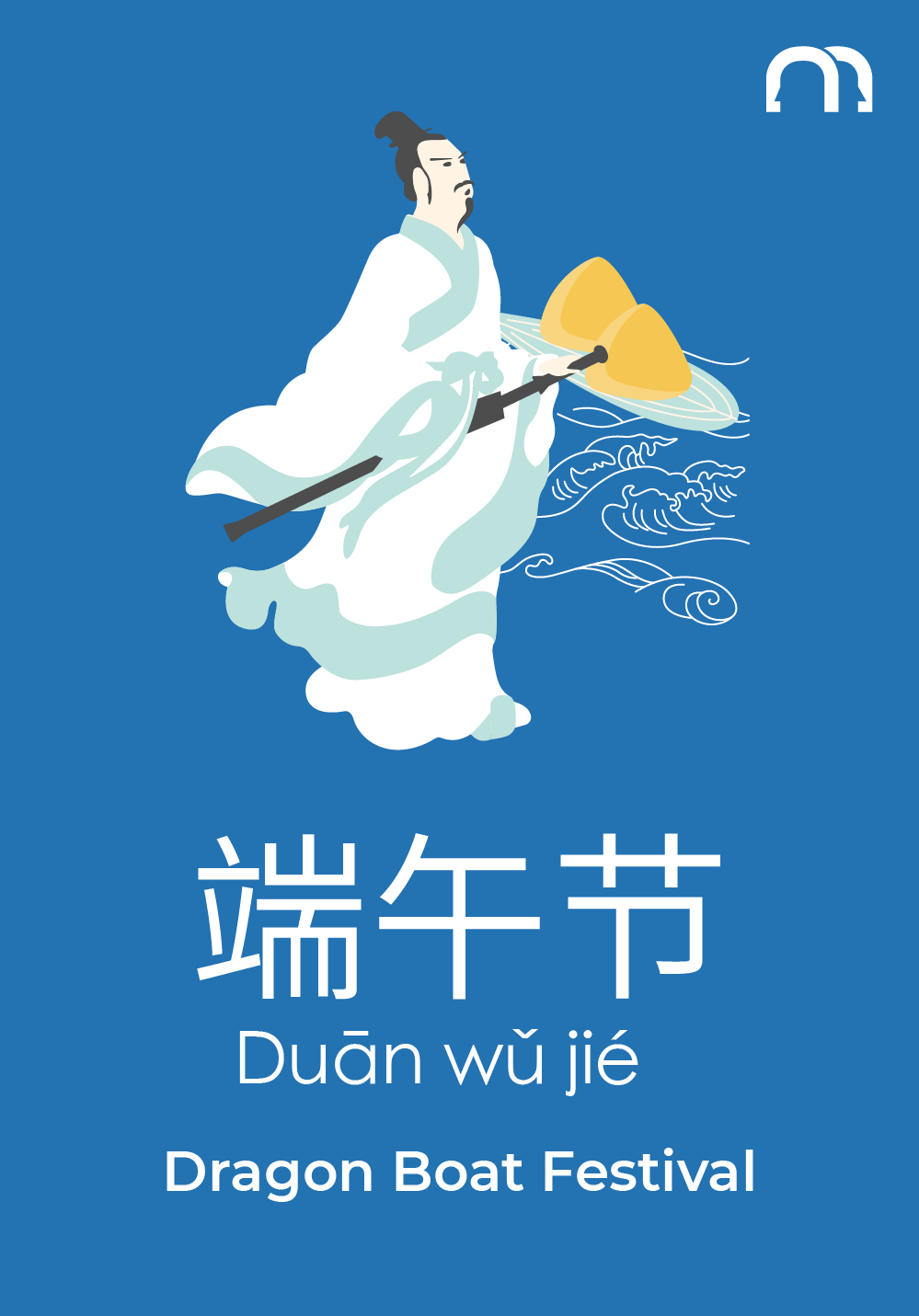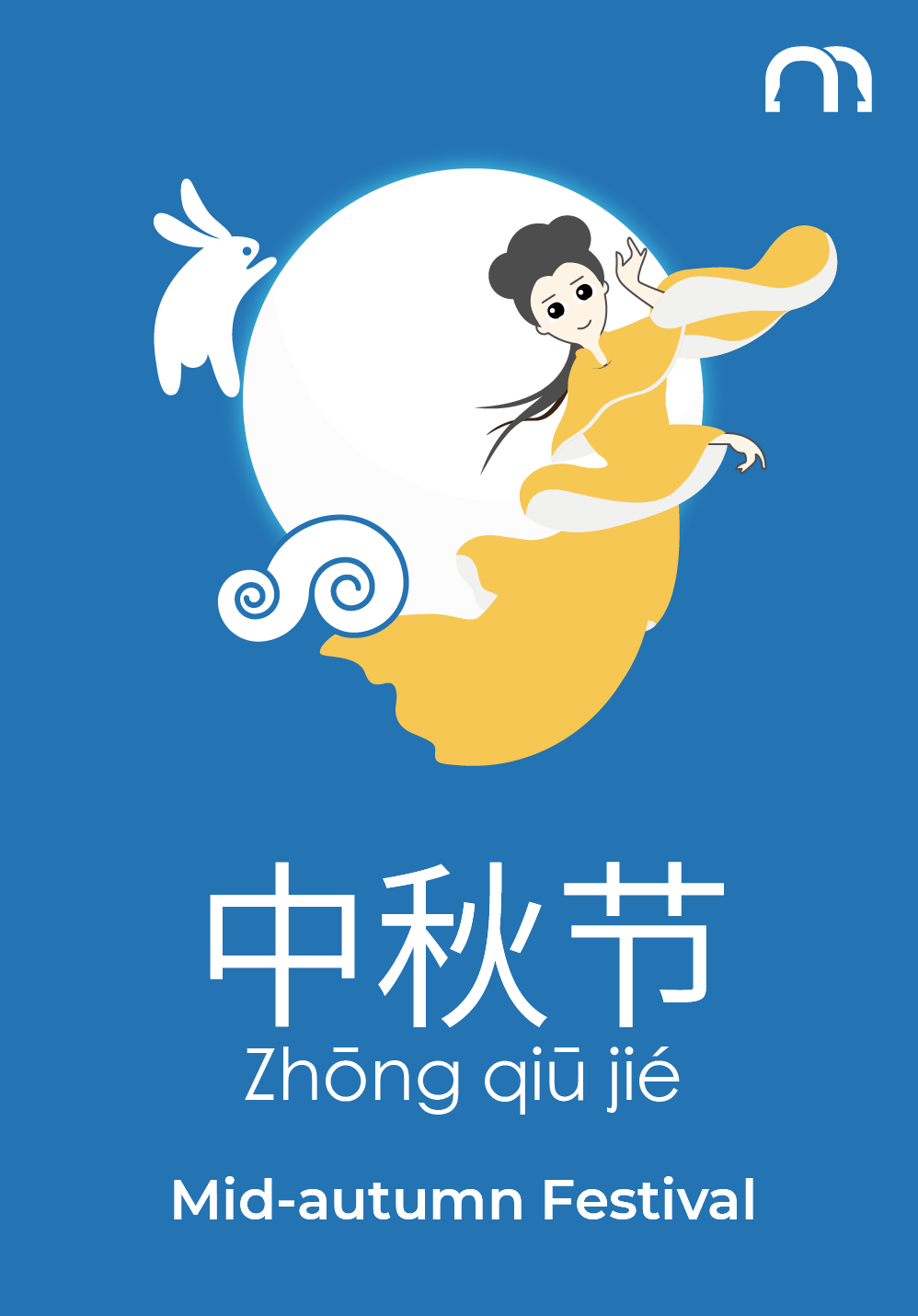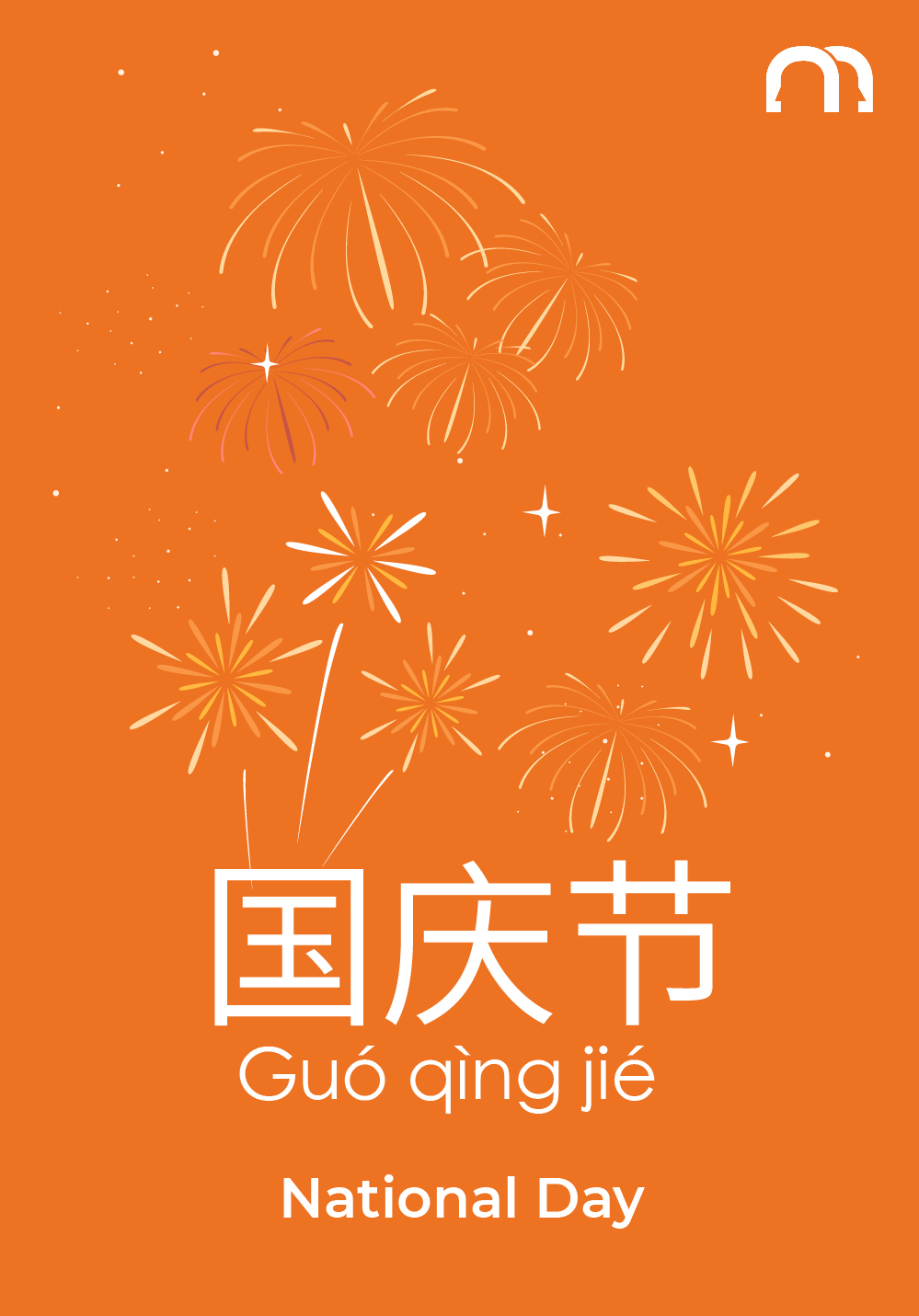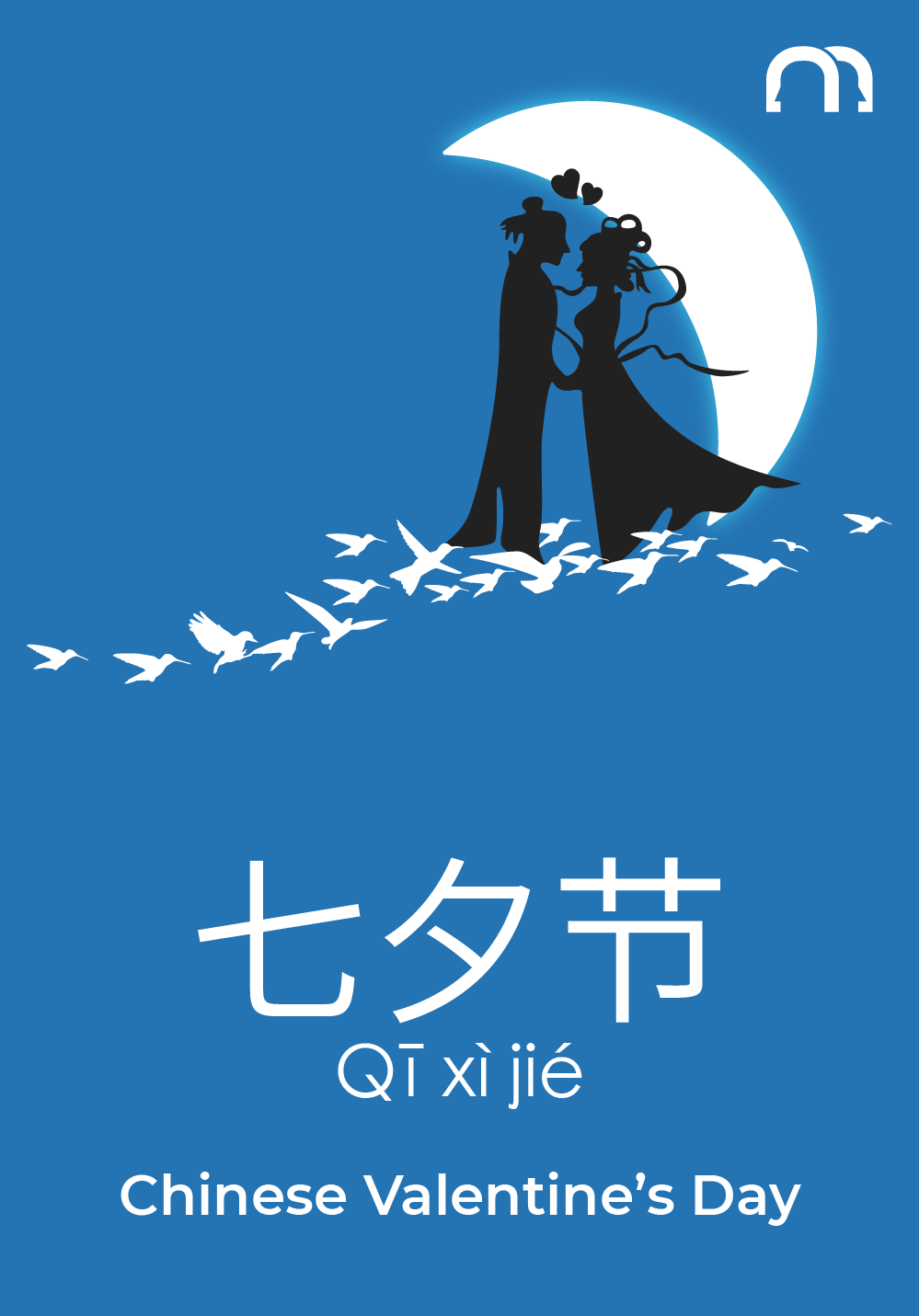Chinese National Holidays in 2022
All you need to knowAs the year 2021 is coming to end, it’s time to make plans for 2022!
Here comes a list of all Chinese public holidays in 2022 including dates, duration and compensation work days, to help you better plan your year.
China’s National Holidays in 2022 are:
- Jan 1–3: New Year Holiday (元旦)
- Jan 31–Feb 6: Spring Festival, or Chinese New Year (春节)
- Apr 3–5: Tomb Sweeping Day (清明节)
- Apr 30–May 4: Labour Day Holiday (劳动节)
- Jun 3–5: Dragon Boat Festival (端午节)
- Sep 10-12: Mid-Autumn Festival (中秋节)
- Oct 1–7: National Day (国庆节), or Golden Week (黄金周)
Chinese National Holidays in 2022
January 1 – 3
New Year Holiday (元旦)
In 2021, the New Year holidays will last 3 days: from Jan 1st to Jan 3rd (Saturday — Monday).
Good news: This year, January 1 falls on a Saturday, so it will be combined with the weekend into a 3-day holiday. No need to work on weekends to compensate!
💡 About New Year in China
January 1st is considered to be the first day of the year by the Gregorian calendar, commonly used around the world including China.
Chinese people also celebrate some holidays according to the Lunar Calendar – but in everyday life, everyone uses the Gregorian calendar.
January 31 — February 6
Spring Festival, or Chinese New Year (春节)
The Spring festival holiday in 2022 will last 6 days, from January 31 to February 6 (Tuesday — Sunday). The Chinese New Year Day this year falls on February 1.
Bad news: We’ll need to work on Jan 29 (Saturday) and 30 (Sunday) to compensate for the long break.
💡 About Chinese New Year
It can also be referred to as the Lunar New Year or Spring Festival.
The years of the Chinese calendar work on a 12-year cycle. Each year is represented by an animal. The animals, in order, are as follows: Rat, Ox, Tiger, Rabbit, Dragon, Snake, Horse, Goat, Monkey, Rooster, Dog, Pig. It is thought that people born during a certain year will have the attributes of their corresponding zodiac animal.
2021 will be the Year of the Ox.
April 3 – 5
Tomb Sweeping Day (清明节)
The 清明节 (Qīngmíng Jié), or Tomb Sweeping Day break will last 3 days, and it will take place from April 3 to April 5 (Sunday — Tuesday).
Bad news: This year, Tomb Sweeping Day falls on a Tuesday (April 5), so we’ll need to work on April 2 (Saturday) to compensate.
💡 About Tomb-Sweeping Day
Tomb Sweeping Day dates back to over 2500 years ago. It is recognized as an important day to show respect to one’s ancestors.
On this day, Chinese people honor and commemorate their ancestors by visiting their graves. They make offerings of food and tea and burning incense. They also repair and sweep the tombs.
Apr 30 – May 4
Labour Day Holiday (劳动节)
The Labour Day holiday in 2022 will be 5 days long, and last from Apr 30 to May 4 (Sat – Wed).
Bad news: We’ll have to work on April 24 (Sun) and May 7 (Sat) to compensate.
💡 About Labor Day
Labour day is also called Worker’s day. It is a public holiday that celebrates workers contributions to the country. Unlike other Chinese holidays, labour day is based on the traditional Gregorian calendar. That is opposed to the Chinese lunar calendar.
Traditionally, the labour day holiday is a time where people get together for family fun. Due to the warm weather over this period, it’s common for people to travel to natural settings and enjoy time outside.
While there are no traditional foods or cultural activities on this day, you can be sure there will be plenty to do in and outside of the cities.
June 3 – 5
Dragon Boat Festival (端午节)
This year, the Dragon Boat Festival holiday will last 3 days: from June 3 to June 5 (Friday — Sunday).
Good news: Since the holiday falls on a Monday, it will be combined with the weekend – no need to work afterwards to compensate!
💡 About the Dragon Boat Festival
The Dragon Boat festival is considered an important and traditional holiday in China. The dragon boat festival is called 端午节 in Chinese and takes place on the fifth day of the fifth month of the Chinese lunar calendar.
The origin of the dragon boat festival is said to go all the way back to the 3rd century BC to the time of Qu Yuan, a patriotic poet who was a loyal official to the state of Chu. When the state of Qin conquered the state of Chu, Qu Yuan was so distraught that he drowned himself in a river.
When the local people heard of Qu Yuan’s death, they were very sad and rowed out on the river in search of his body. In order to keep fish from eating Qu Yuan’s body they threw balls of rice into the water for them to eat.
On this day Chinese people commemorate Qu Yuan by racing dragon boats and eating special sticky rice dumplings called Zongzi.
September 10—12
Mid-Autumn Festival (中秋节)
This year, the mid-Autumn festival lands on September 10.
The holidays will last 3 days: from September 10 to September 12 (Saturday, Sunday, Monday).
Good news: Since the holiday falls on a Saturday (Sep 10), it will be combined with the weekend – no need to work afterwards to compensate!
💡 About the Mid-Autumn Festival
The Mid-Autumn Festival is often called ‘moon day’ or ‘mooncake day’. Traditionally it is a day to gather with family, eat mooncakes and light paper lanterns. The Mid-Autumn festival is also the most important national holiday after Chinese New Year. It is originated more than 3000 years ago when Chinese emperors worshipped the moon in Autumn to thank it for the harvest.
October 1 – 7
National Day (国庆节), or the Golden Week (黄金周)
In 2022, the National Day holidays will last 7 days: from October 1 to October 7.
Bad news: We’ll have to work on October 8 (Saturday) and 9 (Sunday) to compensate.
💡 About National Day
October first is National Day. It is a day to commemorate the founding of the People’s Republic of China in 1949. The holiday that follows lasts until the 7th and it usually referred to as ‘Golden Week’.
It’s important to remember that if you want to travel in China during golden week, you must book well in advance! Transportation is also very crowded during this time and hotel prices generally increase so plan out your trip wisely.
Other notable holidays
While we’ve covered the main public holidays above, there are four other notable holidays which are only observed by specific social groups. These are:
- International Women’s Day (March 8) – Observed for half a day by women only
- Youth Day (May 4) – Observed for half a day by youths between 14-28 years of age
- Children’s Day (June 1) – Observed for a full day by children below 14 years of age
- Army Day (August 1) – Observed for half a day by military personnel in active service
- China’s Valentine’s Day (August 4) – 七夕节 (Qīxī Jié), takes place on the 7th day of the 7th month on the lunar calendar
Summing up
Well, there it is, all the Chinese National Holidays for 2022. Remember, if you’re planning on traveling around China during any of these holiday breaks, it’s important to book early and plan wisely as things can get quite chaotic. Especially if you’re planning to visit any tourist attractions.
We hope you’ve enjoyed reading this article. We wish everyone a wonderful year ahead!


